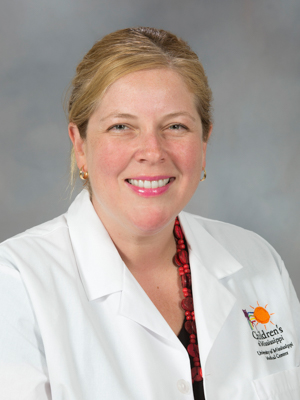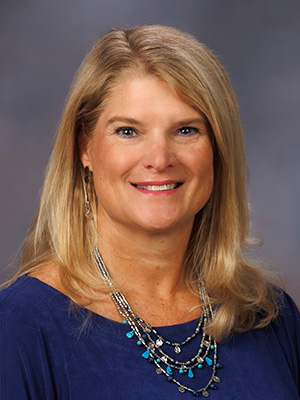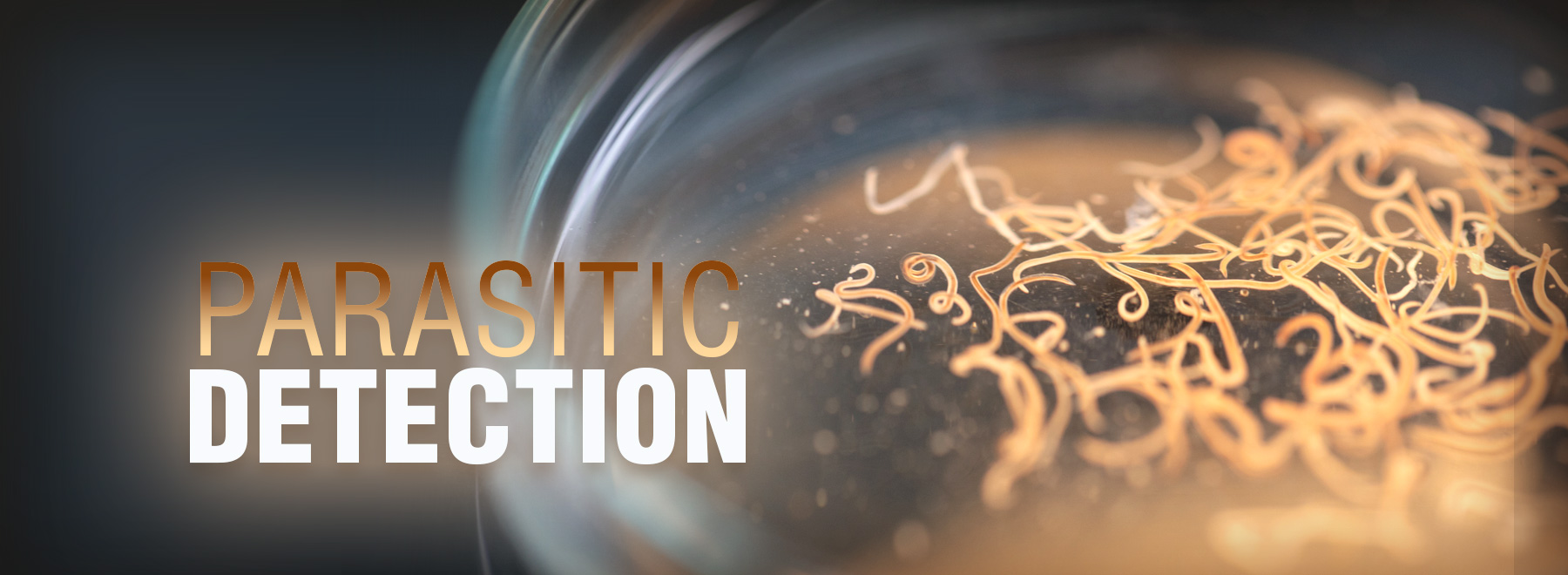Pediatricians, parents should watch soil-borne parasite signs
Children and dirt may seem inseparable in the summer, but soil can harbor parasites that could pose an infection risk to youngsters and adults.

“There’s a reason your mother always told you to wash your hands after playing outside,” said Dr. Charlotte Hobbs, professor of pediatric infectious diseases at the University of Mississippi Medical Center and author of several studies on soil-transmitted helminths, or parasites, including human hookworms, and Toxocara, a roundworm found in dogs and cats that can cause a host of serious health problems in humans.
Found in the waste of dogs and cats, Toxocara, or roundworms, can wreak havoc on internal organs, including the eyes.
“I remember an older doctor telling me that, years ago, his daughter went blind from playing with a puppy,” Hobbs said. “That’s an extreme case, but it shows what can happen from contact and accidental ingestion of soil that contains excrement from dogs and cats — which can happen with contact and not washing one's hands.”
Going blind after ocular larva migrans, when the parasitic larvae settle in the eyes, is rare, but it's not unheard of, Hobbs said. Researchers have found that rates of Toxocara infection, or toxocariasis, are higher in Mississippi than the national average.
“The biggest reason for this is that, in Mississippi, the weather conditions are perfect for soil-borne parasites to complete their life cycle,” Hobbs said. “The warm, humid summers are perfect for them.
“The soil type is also perfect for human hookworms. They love sandy, loamy soil.”
Studies by medical experts at UMMC, including Hobbs, showed that, in the Mississippi Delta region, children were having fewer infections of soil-transmitted parasites, such as human hookworms, but more infections of Toxocara. Continued surveillance for human hookworm and other soil-transmitted parasites throughout the state, however, is ongoing and will take years to conclude.
Hobbs said these soil-transmitted helminth infections can be treated with prescription medications.
“Treatment usually includes an antiparasitic medication, sometimes in combination with steroids which reduce inflammation and symptoms depending on the infection type and organs involved,” she said. “Diagnosis is so important since parasitic infections can be easily treated once discovered.
“However, children can get re-infected without source remediation, so treatment should be undertaken with a physician who may need to involve the Department of Health.”
Taking inspiration from work done by the Rockefeller Foundation more than a century ago to eradicate human hookworm infection in the southern U.S., the Mississippi Parasite Project is tracing some of the same areas studied 100 years ago to see if these infections are staging a comeback.
In 1910, about 40 percent of the South’s population had been infected with human hookworm through the soles of their feet when they walked barefoot. The larvae travel through the bloodstream and into the lungs and throat before settling into the small intestine.
To fight the spread of human hookworm, the Rockefeller Sanitary Commission for the Eradication of Hookworm Disease mapped where these hookworm infections were occurring, treating patients and providing education. Hobbs said these methods work today as a public health strategy. Although treatment alone is easy if the infection is suspected and identified, source remediation, or minimizing risk of re-exposure, is also essential.

Dr. Lisa Haynie, UMMC professor of nursing and co-investigator of the Mississippi Parasite Project, said the project’s participation rate has been good.
“I have been pleasantly surprised by our research participation rates in both our Delta pilot project as well as the Rankin County portion of the study," Haynie said. “This is a true testament of how these communities perceive the importance of this study and the need to understand how parasitic infections, if left untreated, can result in chronic problems in children.”
More than 100 years after the Rockefeller Sanitary Commission, samples positive for human hookworms from the limited samples collected by UMMC were virtually nonexistent, but the rate of Toxocara was higher than researchers had expected.
Studies of fecal samples of more than 600 Mississippians showed no samples indicating human hookworm, but 9.2 percent of blood samples were positive for immune responses to Toxocara, indicating either previous or current infection.
“The combination of Mississippi’s climate and areas where dogs and cats, possibly feral ones, and certainly dogs or cats that are not dewormed and roam freely can make the spread of Toxocara likely,” Hobbs said.
The Mississippi Parasite Project has received funding from the U.S. Centers for Disease Control and Prevention to extend its research five more years. The $413,000 in annual funding is renewable each year through 2026, which will allow the project’s expansion from surveillance in Rankin County to the needed surveillance of the entire state.
In addition, the project aims to promote education to providers, raising awareness of the diagnostics, prevention and treatment of human hookworm and other soil-transmitted helminth infections.
“Case Report: Ocular Toxocariasis - A Report of Three Cases from the Mississippi Delta,” coauthored by researchers - including Hobbs - and written in collaboration with Dr. Brian Tieu, UMMC assistant professor of ophthalmology and co-senior author, has been published in The American Journal of Tropical Medicine and Hygiene. The case report notes that poverty is only one of the conditions that encourage the spread of soil-transmitted parasites.
According to the U.S. Census Bureau, from 2014-16, 20.8 percent of Mississippians were living in poverty, which is among the highest rates in the country. Limited access to medical care increases the risk of an infection not being diagnosed or treated.
Because clinical care can be scarce in some areas of the state, “it is likely that more people suffer from this disease without proper diagnosis and care,” the study noted. “This . . . illustrates the fact that Toxocara ocular larva migrans still occurs in the American South, leading to loss of visual acuity and potential blindness.”
Many pediatricians in the state are unfamiliar with the condition, a survey connected to the study discovered.
“Parents may also delay seeking medical help because they don’t recognize the symptoms,” Hobbs said.
Light soil-transmitted helminth infections usually have few symptoms, if any, according to the U.S. Centers for Disease Control and Prevention, making diagnosis difficult in early stages. Chronic fatigue is a vague sign in the infection’s early days.
It is only when the infections become severe that symptoms including abdominal pain, diarrhea, rectal prolapse and slowing of physical and cognitive growth, show up. But providers may not think of these infections when considering these symptoms.
Through the Mississippi Parasite Project, children enrolled in the study are checked for these infections. The study is conducted through surveillance in local areas in partnership with collaborating physicians and community networks.
Strengthening this study are UMMC research resources and training, Hobbs said.
“We have the only laboratory in the southern U.S. with expertise in microscopy,” she said.
Parasitic infections can be prevented by washing hands thoroughly after touching dirt or having contact with animals and by wearing shoes when outside, Hobbs said.
“The problem is a lack of awareness that parasitic infections can occur,” she said. “We have to be aware and know what to look for.”
The above article appears in CONSULT, UMMC’s monthly e-newsletter sharing news about cutting-edge clinical and health science education advances and innovative biomedical research at the Medical Center and giving you tips and suggestions on how you and the people you love can live a healthier life. Click here and enter your email address to receive CONSULT free of charge. You may cancel at any time.



